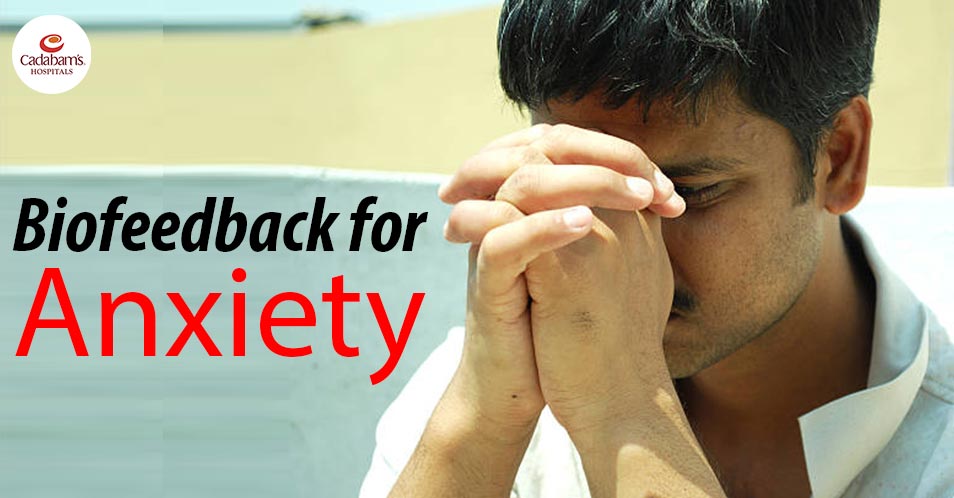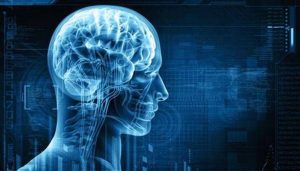Table of Content
It is okay to be anxious at some point but chronic anxiety can be a thing you need to worry about. Normally, anxiety is a part of the brain’s defense system. It is an alert to a threat of unknown fears. While an individual is in a state of anxiety, the body’s response to this event may vary from a sense of worry to physical sensations such as a pounding heartbeat.
But when you have an anxiety disorder or chronic anxiety, the same response can become intense. With anxiety, the body reacts to stress inappropriately and in a harmful way. It’s important that if you’re seeing signs of anxiety, you should seek proper treatment.
At Cadabam’s Hospitals, we build treatment plans based on individual needs and requirements. We have experienced and highly trained mental health professionals who use state-of-art facilities and clinically verified treatment modalities to help patients manage their anxiety. Over the past three decades, we have helped thousands of people - and we can help you too. Get in touch with us today. Call us at +91 97414 76476 or send us an email at info@cadabamshospitals.com.
What is anxiety disorder?
Chronic anxiety disorders are mental health conditions that involve excessive worrying or stressing about impending situations or aspects of a person’s life. The individual knows what they are going through is not a part of normal life yet they are unable to stop or control it.
Anxiety can be extremely distressing. It disrupts relationships with others, impedes the ability of the person to fulfill daily tasks at work or school or home, and decreases self-confidence. Individuals suffering from this at times say that it never goes away but rather they learn to control and cope with it.
While anxiety is mostly known for behavioral changes, it can also have endangering consequences on your physical health too. Unknowingly, anxiety elevates your breathing and heart rate to promote blood flow to the brain, where you need it. If it gets too intense, you might start to feel lightheaded, dizzy, and nauseous. The intense state of anxiety can have an abiding impact on your mental and physical health.
The need of the hour is to go through the treatment and improve your quality of life by changing your thought pattern. Stress has become common these days, fortunately, medical interventions have grown so much and there are high-end therapies to holistically enhance health. Among the various treatment options for anxiety disorder, there is one that is seen to be easy to administer, non-invasive and effective and that is biofeedback for Anxiety.
What is Biofeedback for Anxiety?
Biofeedback is a technique in which the person’s bodily processes are measured and displayed to them through a screen, and then they are taught how to control, as in to increase or decrease, these bodily processes. Biofeedback for anxiety is used as an adjunct to therapy and not administered as a sole treatment on its own.
There are different types of biofeedback techniques/devices that are used to treat an individual with anxiety all these devices measure or monitor the physical symptoms of anxiety:
Biofeedback techniques for Anxiety
There are different types of biofeedback techniques/devices that are used to treat an individual with anxiety all these devices measure or monitor the physical symptoms of anxiety:
- Feedback thermometer: It measures the skin temperature and attached to the fingers.
- Electromyograph: This measure the muscle tension of a targeted muscle.
- Electrodermograph: These measure sweating in the individual.
- Electroencephalograph: It measures the brain activity.
How does biofeedback therapy for anxiety works?
Looking at the various different types of anxiety disorder, one can identify the one symptom that is common among them. These are the physical symptoms, all the anxiety disorder involves physical symptoms such as increased heart rate, difficulty in breathing, sweating, etc, in short, the activation of the parasympathetic system that puts an individual into the flight or fight mode. Biofeedback helps the individual reduce and control these symptoms.
Biofeedback for anxiety gives the individual the feeling that they lack and want it the most: the feeling of being in control of the situation. When they are shown their physical symptoms, at first, they would be shocked as to how their body is reacting.
Later when they are taught relaxing techniques and are shown how through these techniques they are able to decrease their bodily process, they feel more in control. This also, eventually, can help them get the motivation to control their ever-running thoughts as now they have the evidence that things can be in control.
Summing Up
If biofeedback therapy for anxiety is successful for you, it might help cut down the medications you are already taking. But do not stop the medical treatment without consulting your healthcare team.
Biofeedback may not, initially, show any improvement, as it takes quite some time and practice on the part of the suffering individual. But it is one of the techniques that is considered safe and is seen increasingly effective in treating anxiety disorders.
Check out this video that explains the science behind anxiety and panic attacks.
Why Cadabam’s Hospitals?
Cadabam’s Hospitals is a multispeciality mental health hospital dedicated to helping people analyze, diagnose, and treat a wide spectrum of conditions. Biofeedback for anxiety is one of the best treatments we offer to patients to combat stressful mental health conditions. Our biofeedback doctors and professionals use state-of-the-art instruments and procedures to ensure the legitimacy of the treatment. Cadabam’s Hospitals, over three decades, has helped thousands of patients live healthier and happier lives. For more information on our biofeedback treatment, please visit https://www.cadabamshospitals.com/bio-feedback/.
Frequently Asked Questions
Q1: What kind of stress-related symptoms can be helped with biofeedback?
Ans: Biofeedback training helps improve anxiety, depression, headaches, stomach distress, muscular tension, insomnia, pain, difficulty concentrating, excessive worry, or feeling overwhelmed.
Q2: Are there any side effects of biofeedback?
Ans: The studies have claimed biofeedback to be safe and there are no side effects linked to it. However, biofeedback is not for everyone. Consult your primary care doctor before starting biofeedback for any mental health condition.
Q3: What kinds of things does a biofeedback monitor?
Ans: The biofeedback therapy may monitor things such as muscle tension levels in areas of the body or specific muscles, changes in peripheral skin temperature reveals information about problems in the cardiovascular system.
Q4: How is a person connected to the biofeedback equipment?
Ans: Biofeedback is non-invasive and causes no physical discomfort. No electrical currents are ever applied to the body. Biological activity is monitored through small pickup sensors attached to the body, usually with tape, gel, or a conductive paste.
How Cadabam's Help you for Addiction?
- 410+ Professional Consultants
- 1,00,00+ Happy Faces
- 120+ Currently Seeking Treatments












